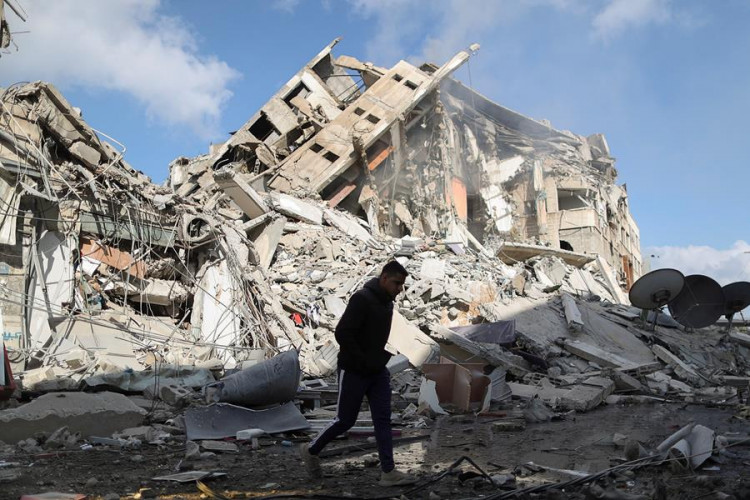The harrowing ordeal of a Michigan couple, caught in the crossfire of the Israel-Hamas conflict and their subsequent legal action against the U.S. government, underscores the perils faced by American citizens abroad during times of war and the challenges they sometimes encounter when seeking help from their own government.
Zakaria and Laila Alarayshi, who hail from Livonia, Michigan, found themselves in the midst of life-threatening danger during what was supposed to be a short visit to family in Gaza. Their visit coincided with the outbreak of hostilities on October 7. As violence escalated, the couple's planned return to the U.S. was abruptly halted.
The situation grew dire as the Alarayshis witnessed the terrifying reality of war. "I was crying. I'm 60 years old, crying, and all the kids came to me saying, 'We don't know what to do.' Everyone was scared," Zakaria Alarayshi shared during an emotional recount of their experience at the Arab American Civil Rights League office in Dearborn. The bombings were incessant, shaking the very foundations of the home Zakaria had spent $500,000 building, forcing them to evacuate.
Faced with such fear, the Alarayshis turned to the U.S. Embassy for aid but met with disappointment. "They told me, 'We'll call you back.' I waited, and nobody called me back," Zakaria lamented, expressing the frustration felt at the apparent lack of support.
“I was crying," Zakaria Alarayshi told reporters Wednesday at the Arab American Civil Rights League offices in Dearborn.
“Everyone was scared. Bombs everywhere. When I go to sleep, we cannot sleep. Maybe I’ll sleep in a chair for 30 minutes a day."https://t.co/WKDEzgsmaF — UpNorthLive News (@upnorthlive) November 9, 2023
The peril the Alarayshis experienced echoes the larger plight faced by many Americans abroad during crises. Their successful evacuation, largely attributed to the efforts of U.S. Rep. Rashida Tlaib and the Arab American Civil Rights League, who worked tirelessly to navigate bureaucratic obstacles, sheds light on the potential for disparity in the treatment of American citizens in distress based on their location or background.
Legal action against the State and Defense Departments by the couple highlighted claims of "disparate treatment" and an alleged failure to expediently evacuate them and other Palestinian Americans-a charge that places the government's commitment to its citizens abroad under scrutiny.
Yet, even with their safe return, the Alarayshis' hearts remain heavy with concern for the family left behind amid the destruction. Their personal story is a microcosm of the broader human cost of the Israel-Hamas conflict, which has seen significant casualties on both sides, including over 10,500 Palestinians and more than 1,400 Israelis.
The international community remains gripped by the humanitarian impact, with the UN reporting thousands fleeing the war zone. This mass displacement highlights the urgent need for coordinated efforts to assist those in peril, regardless of nationality.
The Alarayshis' case has opened a window into the lives of those who are often unseen in the fog of war-the American citizens residing in conflict zones whose safety and rights can be overshadowed by geopolitical complexities. As Lisa Alarayshi, the couple's daughter-in-law, poignantly stated, "They're not considered humans by the rest of the world and I find that heartbreaking and disgusting."
Their narrative serves as a stark reminder of the importance of robust and equitable intervention by governments for their nationals in crisis regions-a reminder that, amidst the machinations of war, every individual's safety should be paramount.






